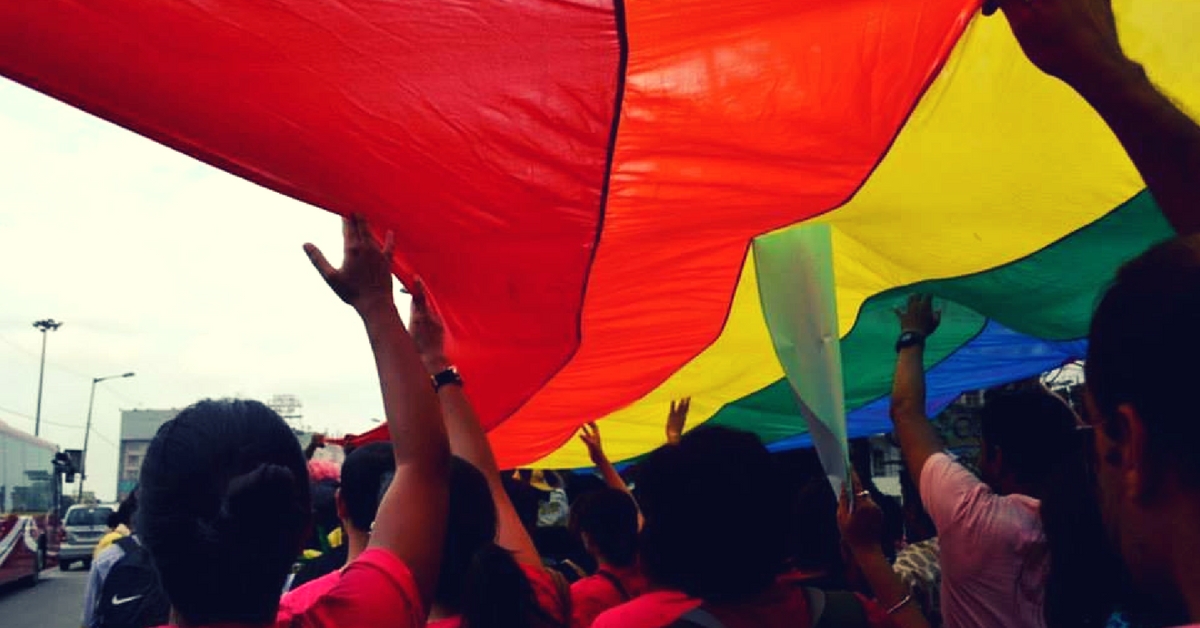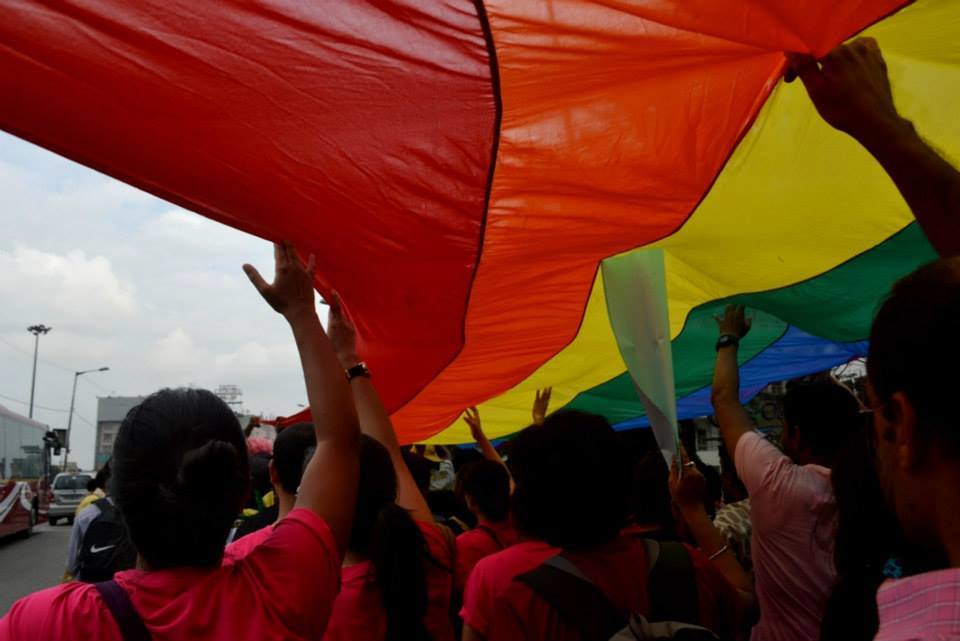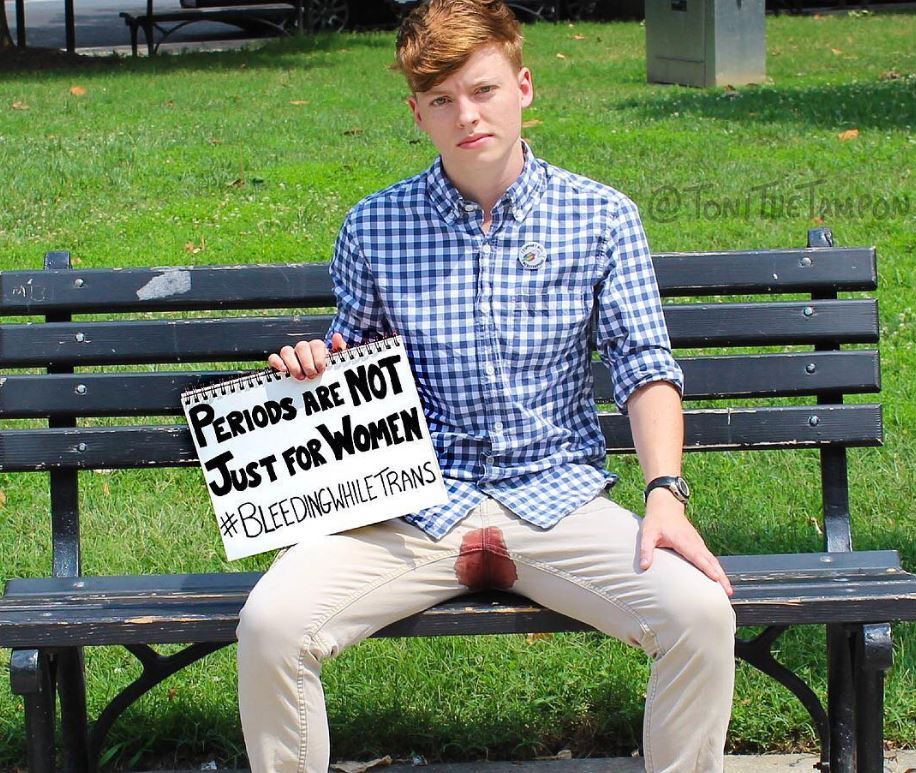‘I Am a Woman, and I Don’t Menstruate’: Why Menstruation Isn’t Only a Women’s Issue
Although a majority of those who menstruate are women, they’re not the only ones who do. So, how can we call menstruation only a women’s issue?

Recently, I came across a discussion on an online forum, where the participants couldn’t wrap their heads around why there was a general disagreement with calling menstruation a ‘women’s issue’.
“I’m baffled that it could be construed as anything other than a woman’s issue?” one of them wrote.
Although the gender of the participants wasn’t revealed, I am, within good reason, assuming this was a cis woman (cis here meaning someone who identifies with the gender they were assigned at birth).
The discussion on the forum’s thread began with the argument that millions of women and girls suffered due to their periods, and that it was a far bigger human rights issue than “where people with gender dysphoria pee”. Hundreds of ‘I agrees’ and ‘obviouslys’ later, the consensus was that they will keep calling it a women’s issue, because it was only women who menstruated.
I think most of them missed the memo that ‘woman’ wasn’t just a biological category anymore. There are people who were assigned female at birth, but identify as male, and get their periods.
Society, however, doesn’t have a place for them in discussions concerning menstruation.

Such discourses always come from the standpoint of cis women. It is assumed that all those who menstruate are women, so menstruation must be a ‘women’s issue’. But if it really is that, then where would you fit trans men in this dominant narrative? If menstruation defines womanhood, are trans women any less ‘women’ than the rest of us? And what about an agender person, who does not identify as having any gender?
I wouldn’t go as far as calling these comments transphobic, but they are highly cissexist as well as binary. When you refer to women’s bodies while discussing menstruation and reproductive rights, it doesn’t do justice to those who have that body, but don’t identify with it.
To get a first person opinion on this, I had a hard time trying to speak to trans men, as well as getting them to speak.
To begin with, none of them wanted to talk about menstruation in particular. I agree, it’s an uncomfortable issue, especially for a community still waiting for a constitutional rights bill to be passed for the last two years. The few who did speak, expressed how menstruation used to, or still causes them, immense dysphoria, and that they didn’t want to revisit those memories. From this, I understood how little they’re included in the said narrative.
I came across a post by an international trans and non-binary artist and activist Cass Clemmer, who was assigned female at birth.

Cass shared an image of their (the artist prefers they/them pronouns) period on Instagram to elucidate why periods aren’t just a women’s issue, along with a poem explaining what it’s like to bleed when you’re trans. “Getting your period while not identifying as a woman can feel like a monthly battle both with your own body and with a world that continuously tells you that your identity isn’t real,” Cass told metro.co.uk.
I found no such conversation online that made news in India.
In collaboration with Aakar Innovations, The Better India is setting up a sanitary pad manufacturing unit in Ajmer, Rajasthan, that will not only produce eco-friendly or biodegradable sanitary pads, but will also employ women from rural communities around the area.
Contribute for the campaign here.
Unable to view the above button? Click here
My chat with a 28-year-old trans woman, Sneha, confirmed the exclusion felt by people like her. “It is tough for me to accept that I will never be able to get my periods. In a way, I feel insecure about my womanhood. But I try to overcome this by broadening my definition of who a woman is. I strongly feel I have every right to participate in discourses concerning menstruation. I identify as a woman, and even though I may not ever have periods, I’m sympathetic towards cis women’s struggle with it. I support period leaves at workplaces, and oppose any kind of religious restrictions forced on women while they menstruate,” she told me.
I wanted to get a non-binary person’s perspective, which is when I spoke to Sparsh, a 21-year-old student. “As a non-binary person, the worst part was the initial years because as an 11-year-old non-binary person, it’s devastating to be told, ‘now you’re a lady’ or ‘you’re turning into a woman’ when you start menstruating. I would secretly cry about it. It had nothing to do with discomfort or pain, but more so about how it was perceived. I Googled how to get rid of it and came across all the surgical options. I was determined to save up for a hysterectomy even when I was 12 because at the time that’s all I wanted.”
Menstruation, of course, doesn’t cause dysphoria to all trans/non-binary individuals. Some deal with it in better ways than others. But the fact that they feel excluded, directly or indirectly, when we call menstruation a women’s issue remains.
So how can we make discussions about menstruation more inclusive?
Perhaps, we could start with a simple change in language, where instead of saying ‘women’ who menstruate, we could say ‘people’ who menstruate.
Sparsh elaborates this. “The language needs to change and menstruation shouldn’t always come with the ‘motherhood’ narrative because that’s sometimes triggering for a lot of young queer kids. They are then, in a way, put under that expectation.”
Also, an open dialogue, online as well as offline, could definitely go a long way. We could promote sanitary napkins in a less gendered way!
But these are just suggestions. If trans women like Sneha can speak in support of cis women, then why can’t they?
What’s most important, in my opinion, is that a cis feminist discourse needs to go away, or we’ll never be able to include trans or non-binary individuals in these deliberations, which will further exclude them from society. As if that isn’t already the case.
In collaboration with Aakar Innovations, The Better India is setting up a sanitary pad manufacturing unit in Ajmer, Rajasthan, that will not only produce eco-friendly or biodegradable sanitary pads, but will also employ women from rural communities around the area.
Contribute for the campaign here.
Unable to view the above button? Click here
Like this story? Or have something to share?
Write to us: [email protected]
Connect with us on Facebook and Twitter.
NEW: Click here to get positive news on WhatsApp!
If you found our stories insightful, informative, or even just enjoyable, we invite you to consider making a voluntary payment to support the work we do at The Better India. Your contribution helps us continue producing quality content that educates, inspires, and drives positive change.
Choose one of the payment options below for your contribution-
By paying for the stories you value, you directly contribute to sustaining our efforts focused on making a difference in the world. Together, let’s ensure that impactful stories continue to be told and shared, enriching lives and communities alike.
Thank you for your support. Here are some frequently asked questions you might find helpful to know why you are contributing?


This story made me
-
97
-
121
-
89
-
167













